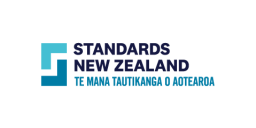Could you use your expertise to develop standards?
Being part of a standards development committee provides a unique opportunity to work with your peers to create something that is of great benefit to both your sector and New Zealand as a whole. Would you like to be involved?
Could you use your expertise to develop standards?
As electricity sector workers, you will be familiar with the use of standards such as the Australian/New Zealand Wiring Rules, but have you thought about being part of developing them?

Our committee members tell us they derive a huge sense of satisfaction from participating in the development of standards. They feel they make a valuable contribution, they build on their professional experience, form networks and learn from the expert knowledge of others in their field. They are also contributing to, and learning from, the latest international knowledge.
Why do committees matter?
Standards development committees are central to the standards development process. They work on a transparent and consensus-based approach that leads to the development of standards solutions that are robust and workable.
Committee members work together to develop content for the standards solution, enhanced with input from other interested parties during the public consultation period. This inclusive process generates wide support and recognition for the final standards solution and ensures it is fit for purpose.
How are committee members selected?
Standards New Zealand invites organisations that represent the views of a large, usually national, group with a common interest in the area being addressed by the standards solution – such as EWRB – to nominate a representative for the committee.
We appoint members from the nominations received – working to ensure the committee is balanced and has a good mixture of expert knowledge and experience. EWRB, for example, recently nominated a committee member for the EL-001 committee which is in the process of revising the Australian/New Zealand Wiring Rules (AS/NZS 3000:2007 Electrical Installations).
The final composition of the committee must be approved by the Standards Approval Board.
What should I do to express my interest?
You can view the work programme on the Standards New Zealand website(external link).
Electrical standards currently open for public comment
The electrical based standards that are currently open for public comments until 14 July 2017 are:
- AS/NZS 3100:2017 Approval and test specification – General requirements for electrical Equipment Amendment 1
- AS/NZS 60335.2.2:2010 Household and similar electrical appliances – Safety – Part 2.2 Particular requirements for vacuum cleaners and water-suction cleaning appliances Amendment 4 (Correction)
- AS/NZS 60335.2.30:2015 Household and similar electrical appliances – Safety – Part 2.30: Particular requirements for room heaters Amendment 2
- AS/NZS 60335.2.34:2016 Household and similar electrical appliances – Safety – Part 2.34: Particular requirements for motor-compressors Amendment 1
- AS/NZS 60335.2.35:2013 Household and similar electrical appliances – Safety – Part 2.35: Particular requirements for instantaneous water heaters Amendment 1
The drafts can be viewed and comments can be submitted on the Standards NZ website.
Standards New Zealand
Standards New Zealand specialises in managing the development of standards using internationally recognised best practices. We also publish and sell New Zealand, joint Australia-New Zealand, and international standards. Our standards are developed by appointed committee members who are experts within their profession and who have been nominated by organisations that will be directly affected by the final standards solution. We have some of the best and brightest people within their fields serving on standards development committees.
Standards span an enormous breadth of subject areas including engineering, building, adventure tourism, organic production, health and disability, children’s toys, clothes and furniture, gas and electricity, energy efficiency, and risk management.

